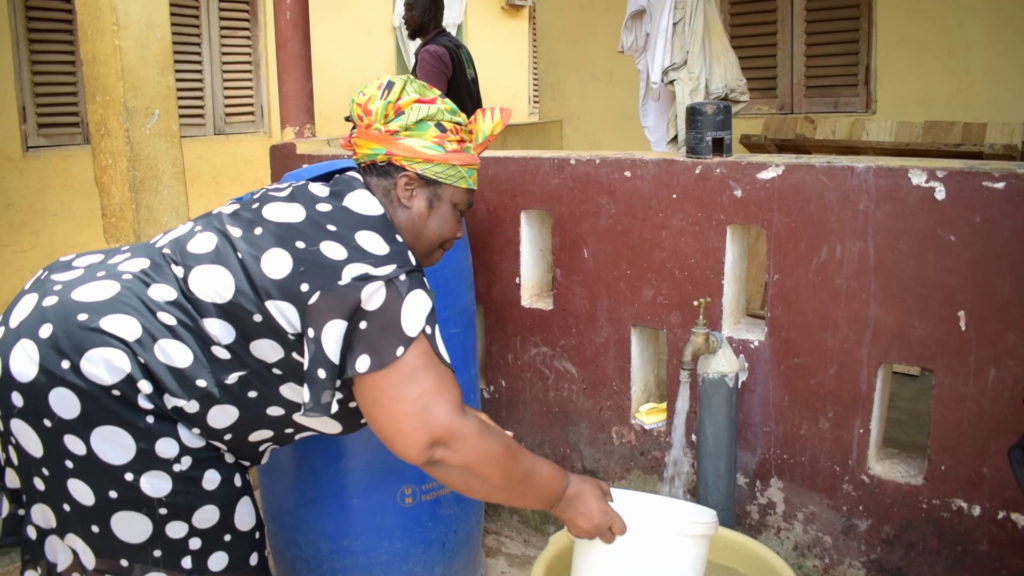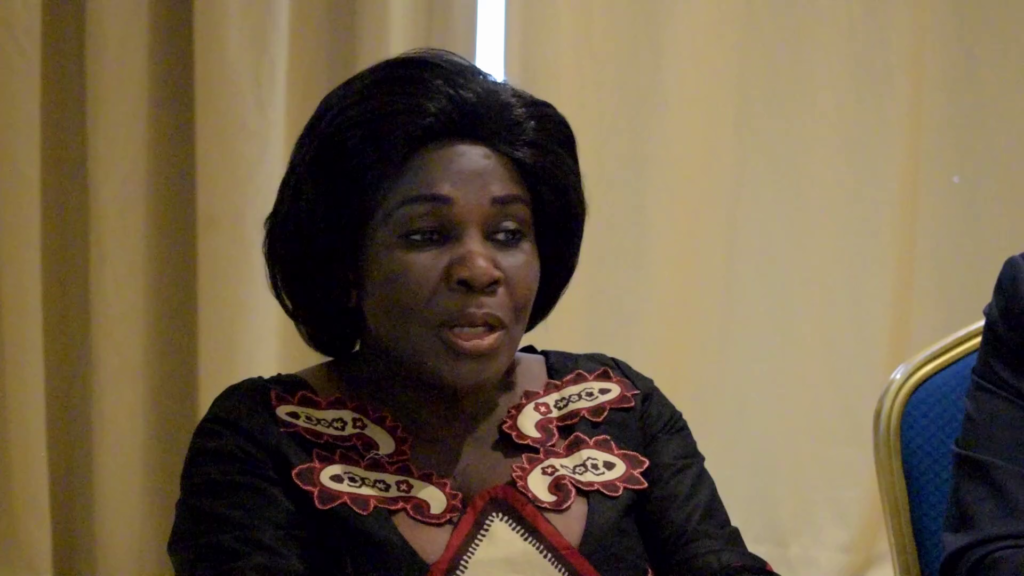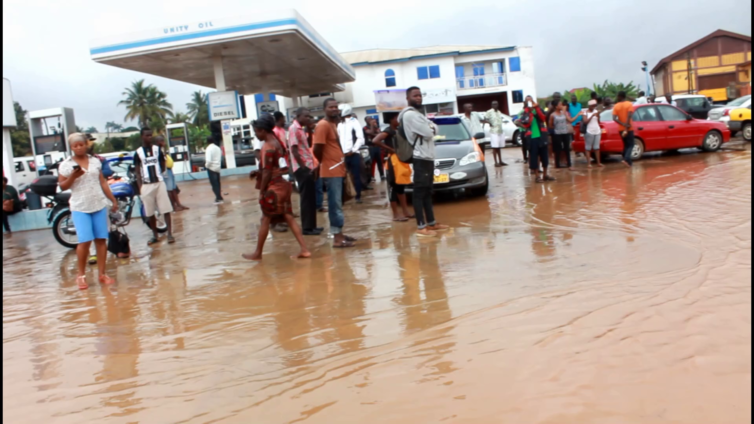Minister of Sanitation and Water Resources, Cecelia Abena Dappah, has outlined economic prospects of making water available and accessible in every community.
While some communities lack access to potable water, the available water sources are highly polluted by illegal miners.
The sector minister wants indigenes to take steps in protecting water bodies to support the government’s efforts to provide potable water.

Research by IMANI Ghana has revealed water and sanitary conditions in Ghana are growing from bad to worse.
This has affected economic activities in certain communities, as they are recording a decline in business.
While some communities lack access to potable water, the available water sources are highly polluted by illegal miners.
Industries and specific projects cannot be undertaken in communities due to polluted water and insanitary conditions.

The Minister of Sanitation and Water Resources, Cecelia Abena Dappah wants indigenes to take steps in protecting water bodies to support the government’s efforts to provide potable water.
Outlining the economic prospects when water is made available in every community, she advised developers and community people to stick to 100metres buffer zone.
" Without water, you cannot have industrialization. Everywhere the government's flagship 1 District 1 Factory programme has been sited, water has been provided. I will use this opportunity to appeal to all, to stop "galamsey", farming near water bodies should be prohibited, the pesticides and chemicals flow into the water bodies and stick to the 100 metres buffer zone."
As soon as water springs up in a community, the youth get jobs to do. It is just like when a new road is constructed, people immediately start trading," she said.
This was revealed in a meeting with the Board Chair of Water and Sanitation for the Urban Poor.

The head, Lorde Paul Boateng, urged the youth to develop solutions for environmental sanitation challenges to generate income.
He observes the fast growth rate at which the green and circular economy.
"Good sanitation is also good business. There is a lot of money to be made in effectively meeting the needs of people for toilets. To provide the means by which waste is disposed of and recycled in a sustainable way.
"In all of this, there is a role for the private sector. It generates jobs and opportunities. An example is Clean Team. They should be supported," he said.
Latest Stories
-
Meet the 37 members of the 8th NDPC
4 minutes -
Government receives $174m as part payment from sale of Newmont’s Akyem Mine
6 minutes -
Climate expert cautions public against use of tainted glasses in residential buildings
15 minutes -
Cedi appreciation driven by mixed domestic and global factors – Prof. Quartey
18 minutes -
Uphold human rights in migrant removals – CHRAJ urges authorities
18 minutes -
EU experts praise Ghana’s 2024 elections
19 minutes -
Ato Forson achieved in 4 months what Bawumia failed to do in 8 years – Osman Ayariga
20 minutes -
Famous Apple designer Sir Jony Ive joins OpenAI
34 minutes -
Target sales hit as Trump tariffs take effect
47 minutes -
Nike to hike prices as it faces tariffs uncertainty
58 minutes -
UK sea temperatures soar after exceptionally warm Spring
1 hour -
Starmer announces U-turn on winter fuel payment cuts
1 hour -
‘CJ may want cameras, but the constitution knows better’ – Amaliba insists on private hearings
2 hours -
CJ removal: ‘Democracy is not the law’ – Abraham Amaliba warns against constitutional overreach
2 hours -
Former DR Congo PM sentenced to hard labour on corruption charge
3 hours

